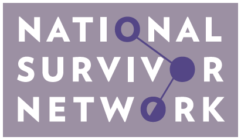December 2, 2022 | Category: Resources
When we have an incomplete view of what “survivor leadership” could be, sometimes we get protective or possessive of what few opportunities we think there are for us to engage in the work to end trafficking. This leads to us acting in ways that are competitive, or that reduce opportunities for solidarity between survivors. Ultimately, this is part of what keeps us from being able to have a movement that is fully survivor-led.
In our recent skill-building session on scarcity thinking and movement leadership, we explored this dynamic, and then went through an overview of what kinds of anti-trafficking work people with lived experience can do, with explanations of what the job is, what kind of training or education it typically requires, and ideas for thinking through where you’d like to be!
Direct Services
- Crisis hotline advocate
- Advocate/peer support
- Case management
- Shelter staff
- Legal and accountability
- Outreach and harm reduction
Research & Best Practices
- Principle investigator
- Co-investigator
- Research assistant
- Research consultant
- Trainer
- Technical Assistance Provider
- “TTA Provider” (training and technical assistance in one job!)
Community Organizing
Prevention
- Community educators
- Systems and strategic preventionists
- Working in related fields (homelessness, child maltreatment, immigrants and refugees, for example) to reduce their vulnerabilities to economic or physical/sexual exploitation.
Policy and Structural Change, Development
- Lived experience policy speaker
- Policy consultant, advocate, or strategist
- Development director
- Grants manager
- Media and communications
Organizational Leadership
- Program manager
- Operations or organizational policy
- Human resources
- Director or executive officer
Remember, you can’t do all of this at once and do it well! Think about where you might fit best. What are you interested in? What are you good at? What are you less good at? Do you like working with people? Would you rather work with less direct contact with other people’s trauma? What kinds of emotional, financial, and social supports do you have in place?
You might need to start with some of the work that requires less formal education, experience, or training in order to get a “foot in the door.” Ask for professional development as part of your work agreement, and continue building professional experience that can help you move toward your ultimate goal.
View the full training at your YouTube channel to learn more about each of these jobs!
